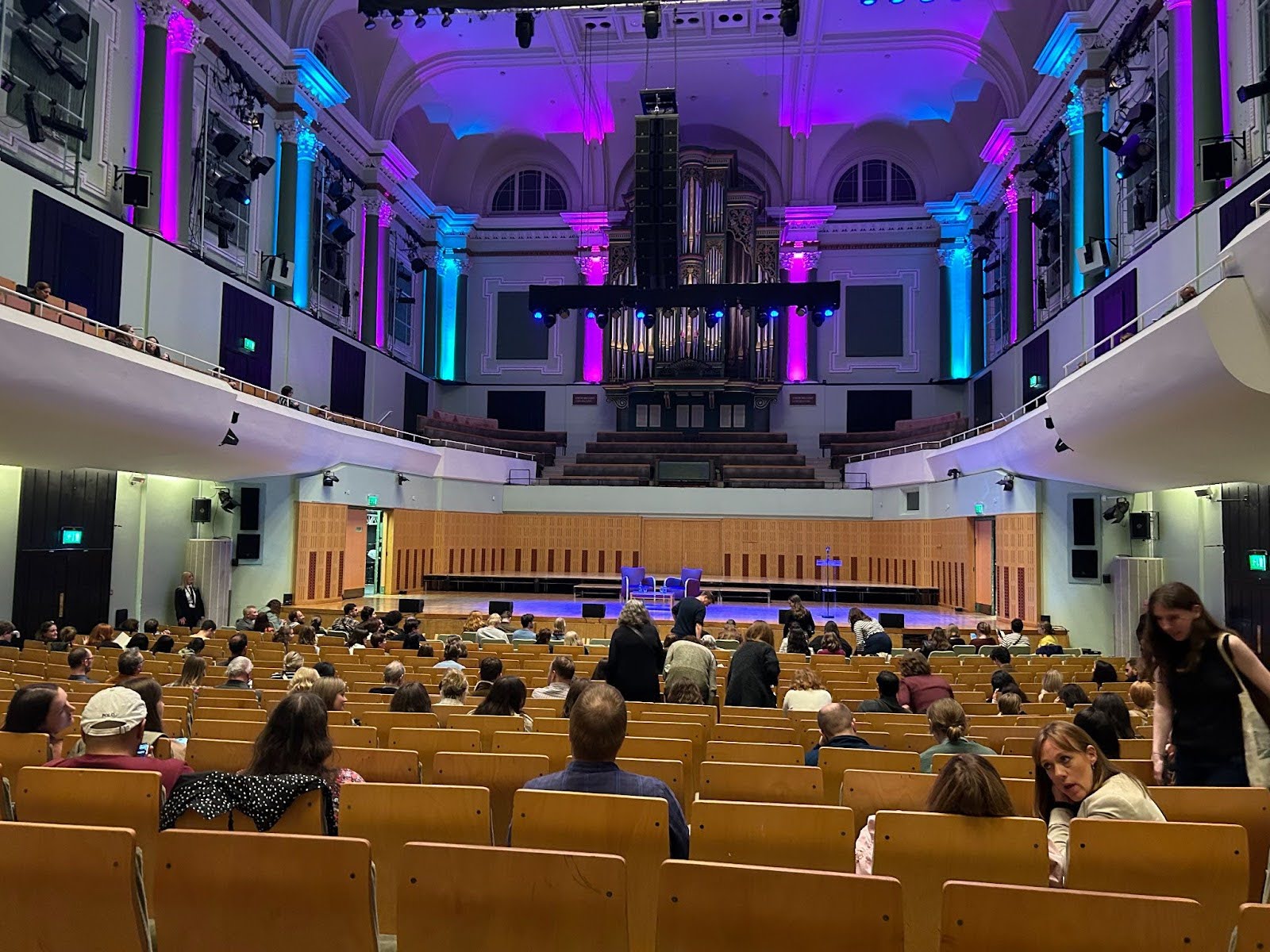
On the evening of Saturday, 21 September, the National Concert Hall welcomed a different type of symphony. In celebration of her new novel Intermezzo the Concert Hall hosted international best-selling author Sally Rooney. Following three critically acclaimed novels, Intermezzo will hit the shelves on Tuesday, ready to greet a swarm of excited fans. The Concert Hall radiated with the energy of Rooney’s enthusiastic fan base – the lobby abuzz with a line out the door to purchase the new novel before the curtains opened.
By 7:30 pm, the crowd shifted to their seats in the main concert hall, ready for Rooney to take the stage. Following a short introduction, the room roared with applause as she finally entered the limelight. Before reading the first paragraph of Intermezzo, Rooney offered a gentle reminder of the sheltered reality in which we sat in such a beautiful and safe space. She echoed her support for the Palestinian cause and her commitment to advocating for peace on both sides of the ongoing Israeli-Palestinian conflict and reminded the audience of the privilege of attending events like this.
Rooney moved on to read the opening paragraph of her newest novel. The themes of brotherhood and grief took centre stage, creating a sense of humanity already present in the work. Fintan O’Toole, award-winning Irish journalist and author, took to the stage alongside Rooney to conduct a more formal conversation for the audience. He opened with a question related to one of the most present themes–brotherhood. Isabelle Slentz, a second-year Political Science and Social Policy student, felt a wave of inspiration as soon as the event began. “I found her conversation with O’Toole to be so relevant and insightful. Her voice especially reaches out to younger generations regarding newfound notions of how religion, sex, and relationships are portrayed in culture,” she says. Nick Wilcke, another attendee, enjoyed the fact that the event was less of an interview and more of a conversation between Rooney and O’Toole. “I could listen to two well dressed and intelligent people talk all day long,” he said jokingly.
Intermezzo highlights the relationship between two brothers, seen from both perspectives. Rooney went on to explain her formulation of the two characters and subsequently their sibling dynamic. She was initially inspired by the game of chess and the idea of Ivan, one of the brothers, as a competitive chess player. Once she spent more time sitting with Ivan’s character, she realised that “it only made sense for him to have a brother.” From there, the relationship blossomed into the novel.
O’Toole enquired how Rooney goes about exploring grief in not only Intermezzo, but all of her novels, as it’s a recurring motif in her work. He pointed out that grief can often be “the hardest emotion to pin down.” Rooney explained that the presence of grief, just as it’s a constant in life, translates to being a constant within her writing as well. O’Toole and Rooney continued to have discussions about her social commentary in her novels and the question of public perception in relationships. O’Toole prompted the discussion with George Berkeley’s famous quote, “to be is to be perceived.” What is a relationship when no one is looking? Rooney explores the idea of perception within relationships through many of her novels, including Intermezzo. She emphasised her hopes to analyse social power imbalances in relationships and how social perception shifts these imbalances.
O’Toole read aloud previously submitted audience questions rather than like giving the microphone to the audience members. One of them probed at how Rooney embeds her opinions and social commentary into her work. Rooney explained that she is never embarking on the project to try and convince readers of her personal beliefs, but her characters will always be an extension of herself and her social perceptions. In her final comments, Rooney emphasised that her work is often about the precious nature of human relationships. “The novel, [Intermezzo], comes down to life,” she reminded the audience.






